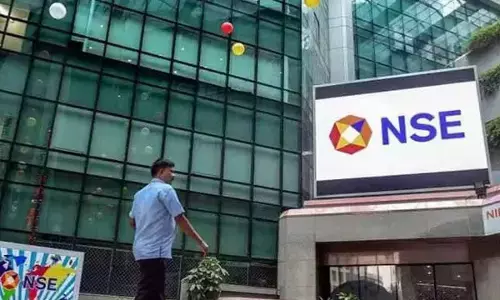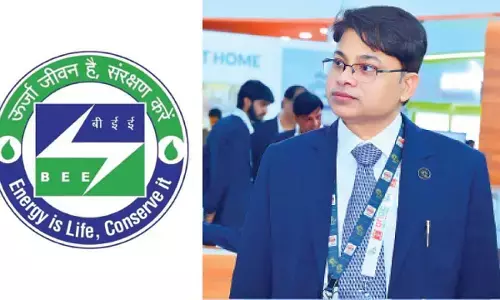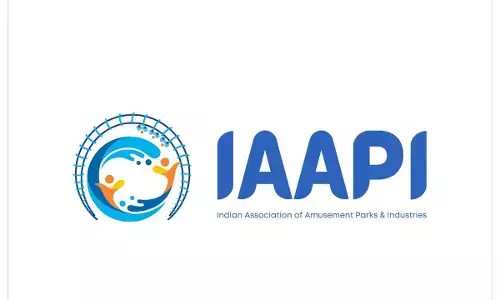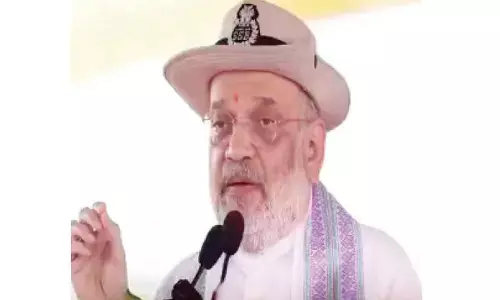Exposed- how Saeed, Mumbai terror cases are dealt by Pak
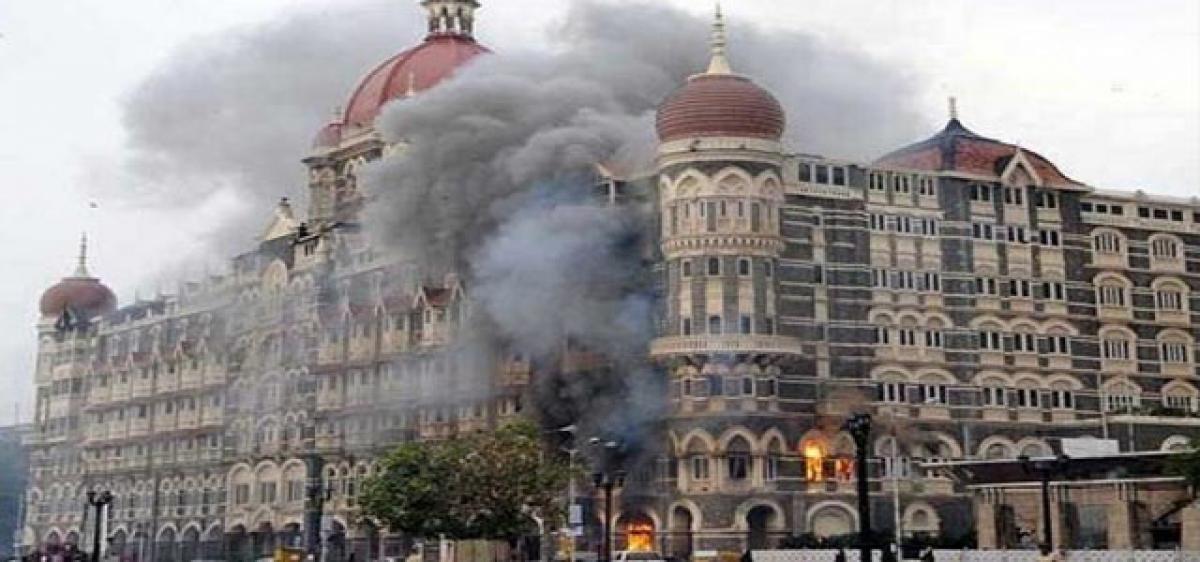
For long years, the world community has been urging Pakistan to “do more” on fighting terrorism and curbing militant elements at home. Now, this “do more” expression has acquired ingenious interpretation, explanation and an excuse.
Not just Saeed, even trial of Zakiur Rahman Lakhvi and others who carried out the Mumbai attacks has been farcical. Slogans hailing them are shouted by lawyers and flower petals are showered on them
For long years, the world community has been urging Pakistan to “do more” on fighting terrorism and curbing militant elements at home. Now, this “do more” expression has acquired ingenious interpretation, explanation and an excuse.
Pakistan’s foreign policy chief Sartaj Aziz has said his government does not take harsh steps against Lashkar-e-Toyaba (LeT) founder and Mumbai terror attacks mastermind Hafiz Saeed for fear that he would be let off by the courts.
Arrested on January 30, Saeed was listed under the Fourth Schedule of the Anti-Terrorism Act by the Government of Punjab province in February.
Saeed’s current house arrest is because ‘If we do more, he will be acquitted’, Aziz last week told German public broadcaster Deutsche Welle (DW). The interviewer said this was just a “slap on the wrist”. Aziz responded: “If we do more, he will get acquittal of the court. Three times he has got acquittal of the court.”
Aziz only needs to read from his own media to know that the house detention came immediately after Donald Trump took office as the United States President, making it clear that he would be harsh on terrorism. Pakistani officials had failed to meet members of Team Trump prior to that and the signs were ominous.
Secondly, China has been pressuring Pakistan on the terror front. Besides its own concerns in Xinjiang province where the Uighour rebels have received training in Pakistan, the urgency now is safeguarding heavy investment in the China-Pakistan Economic Corridor (CPEC). China does not wish Pakistan seen promoting/condoning terrorism.
Next, China’s plans to gain fuller access to the Indian Ocean through Pakistan could get jeopardised should yet another Mumbai-like or Uri-like terror attack take place from Pakistani soil. China knows the Indian response could be strong enough to destabilise Beijing’s plans in the region.
Saeed currently heads the Jamaat-ud-Dawah, which Pakistan has not banned but keeps it on the watch list. The US and the UN Security Council have already declared the JuD and its sister organisation, the Falah-e-Insaniyat Foundation, as fronts for the LeT.
Without a stern action, Saeed’s detention is only a State-sponsored holiday and it suites the Pakistan government. It is obvious that while trying him in its court, Pakistan has conveniently left the onus of gathering evidence almost entirely to India.
It suites Pakistan to reject whatever evidence India has given and it has done so consistently, calling it “non-actionable” or worse, ‘stories’ and ‘hearsay.’ The Foreign Office in Islamabad keeps harping that poor and flawed evidence provided by India is the main reason for the delay in trial.
Not just Saeed, even trial of Zakiur Rahman Lakhvi and others who carried out the Mumbai attacks has been farcical. Slogans hailing them are shouted by lawyers and flower petals are showered on them.
Initial charges of terrorism that carry death penalty have long since watered down to ensure their stay in jail and their release whenever convenient for the Pakistani authorities. Much of that ‘suitability’ is when their presence is needed to carry out anti-India rallies.
Now, an article, called “In-depth” somewhat appropriately, has exposed the way Saeed and the Mumbai terror attack case are dealt with in Pakistan. Umer Farooq, writing in Herald magazine published from Karachi, while quoting Pakistani officials who lay the blame at India’s door, also points to flaws in the Pakistani efforts.
“Public records show some of the flaws in the prosecution’s case. One prosecution witness, a schoolteacher from Kasab’s home town, claimed Kasab (Ajmal Kasab was the lone attacker who was caught alive in Mumbai, tried and executed) was still alive. Other prosecution witnesses did not even know about the Mumbai attacks.
That was precisely the reason why the anti-terrorism court granted Lakhvi bail in December 2014. The government, however, kept him behind bars, fearing international pressure, for another four months under different administrative and criminal provisions of the law,” Farooq says.
“The federal interior ministry has been unsuccessfully trying to brush aside these demands, citing Saeed’s own claims that he had dissociated himself from LeT when it was banned in Pakistan in 2002,” Farooq says.
These legal and judicial hurdles, real or contrived, have however, not assuaged foreign pressure on Pakistan. “Every time some terrorist act happens in India, pressure on Islamabad increases to move against him and his outfit. Action is also sought against Hafiz Saeed who is accused of being the LeT’s patron-in-chief and also the main motivator and instigator of the Mumbai attacks,” Farooq says.
Pakistan’s federal interior ministry has failed to brush aside these demands, citing Saeed’s own claims that he had dissociated himself from LeT when it was banned in Pakistan in 2002. “Background interviews reveal the ministry is either ignorant of or secretive about reports by Pakistan’s own intelligence agencies that he is still heading LeT.
“Lacking accurate information was a source of serious embarrassment for the ministry when in December 2012 Indian officials shared evidence of the association between Saeed and LeT.
“At least one piece of evidence linking the two was revealed when Saudi Arabia arrested an Indian citizen, Sayeed Zabiuddin Ansari, also known as Abu Hamza and Abu Jundal, in 2012 and deported him to India. His name appears in Kasab’s confession, along with Lakhvi’s and Saeed’s, as a handler of the Mumbai attackers.”
Jundal confessed during interrogations in India that he was arrested by Pakistani intelligence agencies from an LeT training camp in Muzaffarabad, capital of Pakistan-administered Kashmir, along with Lakhvi in 2008. He claimed he was allowed to travel to Saudi Arabia without trial. The interior ministry in Islamabad, however, knew nothing of his case.
“A senior American official in the Trump administration recently warned officials of Pakistan’s embassy in Washington that Islamabad should expect sanctions from the United States if Saeed was not put behind bars and the Mumbai attacks trial not brought to a quick conclusion. Pakistan is not in a position to ignore the warning this time around, Farooq quotes an unnamed senior Foreign Office functionary in Islamabad.
Pakistan stands diplomatically isolated but for China’s support. Pakistan’s “two major foreign interlocutors – United States and Saudi Arabia –openly support India’s cause,” Farooq reveals. Even China, while opposing the Indian stance so far, “is pressurising Islamabad secretly to do something tangible – and soon – to address international concerns.”
Pakistan could handle the case better if it made the courts – and the public – know the exact nature of allegations and evidence against Saeed. But, Farooq says, “Secrecy is maintained through close collaboration between top leaders of LeT and JuD and government officials dealing with court cases against them.”
“For talking to you I need to get permission from my clients,” is how Raja Rizwan Abbasi, the lawyer representing Lakhvi, rejected Farooq’s request for an interview.
There is scant mention of LeT in the government’s unclassified records. The organisation figures in a public list, available online, of 64 organisations banned by the interior ministry. It also evokes positive comments from government officials without fail. “It is not deemed a part of those militant groups that have turned against the Pakistani state and have attacked civilians,” Farooq surmises.
Even when LeT was banned, he says, action was taken under duress, but clubbed with six other organisations, after India’s parliament was attacked in 2001.
Banning LeT has never been a priority for the Pakistan government. Amir Rana, an Islamabad-based expert on militancy and terrorism, confirmed to Farooq that there is no fixed official procedure for banning an organisation.
The list of banned outfits includes those that were banned under international pressure, as well as those that have been banned on the basis of internal intelligence reports.
Farooq quotes a senior interior ministry official who sums up the way Pakistan government functions. “We have failed to evolve a set procedure for banning an organisation. One thing, however, is clear — no organisation is banned without the approval of premier military and civilian intelligence agencies.” The clarity within the confused handling of terrorism and the likes of Saeed is transparent.



